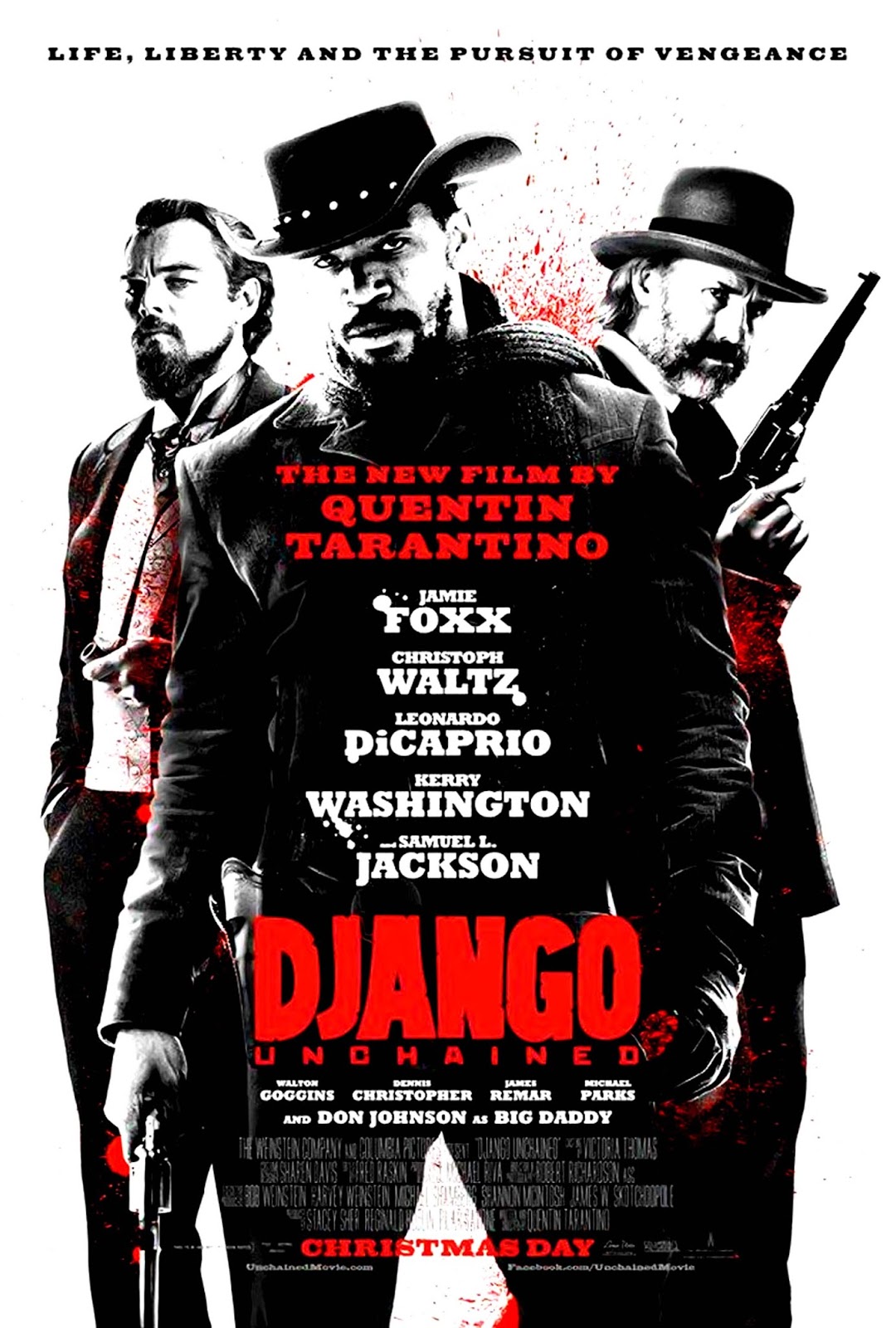Drawing comparisons between Spielberg’s Lincoln and the latest oeuvre de blood from Quentin Tarantino, Django Unchained, might seem odd at best and downright sacrilegious at worst, but they’re not as far apart as you might think.
Not only do both tackle slavery head-on, they also are both solidly among the best films of the year.
Yes, Lincoln is as stately and erudite as Django is brutal and rough, but each is a masterpiece in its own right, destined for a long life as a must-see piece of cinema.
Tarantino once again successfully mixes his trademark razor-sharp dialogue with his deep passion for vintage films, but he also has a much higher purpose here– an examination and repudiation of America’s deepest, darkest ill.
Christoph Waltz, still vivid in many people’s minds as the sadistic Hans Landa from Tarantino’s Inglourious Basterds, plays an echo of that same character here in 1858 Texas– a dentist-turned-bounty-hunter named King Schultz. His latest job requires him to kill an elusive trio of brothers, and for that he needs a slave named Django (Jamie Foxx), who knows what they look like.
Schultz is vehemently anti-slavery and promises Django his freedom once the job is done. But there partnership flourishes (in vivid, blood-splattered glory), and Schultz agrees to help reunite Django with his long-lost wife Broomhilda (Kerri Washington), a slave now owned by Calvin Candie (Leonardo DiCaprio).
The pair set up a convoluted ruse to make it happen and set off for Candie’s Mississippi plantation (aptly named Candie Land) where they encounter the brutal ‘sport’ of Mandingo fighting– slave-on-slave death matches.
Tarantino draws heavily on his love for Spaghetti Westerns (including 1966’s Django, starring Franco Nero, who has a priceless cameo here), combining snap-zooms, oversaturated colors, and the twang-whistle score to create a movie that is at once both a heartfelt homage and a completely unique experience. Nowhere else will you find a film that will simultaneously make you flinch and laugh out loud, all while enjoying a soundtrack that seamlessly blends tunes from Jim Croce, 2Pac, and Pat Metheny.
Foxx and Waltz are both at the top of their game, and DiCaprio, honestly, has never been better. Plus we’re treated to a neck-snapping performance from Samuel L. Jackson as Candie’s house slave and memorable cameos from the likes of Don Johnson, Tom Wopat, and Jonah Hill.
But it’s Tarantino’s full-frontal assault on slavery and prejudice that pushes Django Unchained out of mere entertainment territory and into the rare air of a vitally important feature film. He’s taking a lot of flak for his gratuitous use of ‘the N-word’, and it surely does get tossed around here more than a Frisbee at a church picnic, but combined with the ultra-violent reminder of what slavery used to look like, it may do as much to back up the adage “Those who don’t know history are destined to repeat it” as any movie since Spielberg’s own Schindler’s List.
5/5 stars
